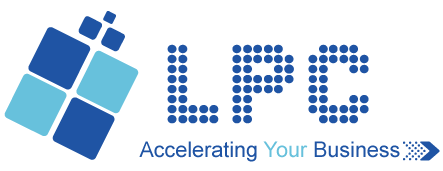As a up-to-date digitally aware marketer, you might manage client information that is siloed over various martech databases and stages. The outcome: Fractured client characters that upset your capacity to convey pivotal marketing aspects to clients.
Then, you’re under strain to convey exceptionally customized marketing— at scale and progressively — as clients connect with your image over various channels, regardless of whether it’s social, email, web, or something different.
Progressively, marketing professionals are swinging to a Customer Data Platform (CDP) for help. A CDP arrangement settles your scattered, siloed client information into cognizant client profiles, stores them in one database, and makes those profiles completely accessible to other martech devices. With a CDP, your association has an arrangement of record — the much looked for after “single wellspring of truth” — that makes your client information genuinely noteworthy.
As research firm Gartner puts it, a CDP can fill in as the keen center point of your martech stack. Different apparatuses go about as the “idiotic spokes,” pulling client information from the CDP to convey the correct promoting substance to the correct client at the opportune time.
Contrasted with individual martech stack tools (otherwise known as the “idiotic spokes) for example, site personalization instruments, CDPs with machine learning have the smarts to give bits of knowledge into past and in addition potential future of the client practices and consumer behavior.
Here are 5 motivations to consider a CDP as your martech stack’s pivot:
1. CDPs Provide the Utmost Complete View of Your Customer horizon
A CDP gathers and gives you a chance to deal with your associated client’s information crosswise over web, email, social, call focus communications, and different channels. The data contains both known and unknown information that elements the practices, interests and activities of your clients all through their disconnected and online cooperations with your association.
This first-party information gives a fully nuanced perspective of your clients. In that capacity, a CDP gives bound together client information which can be used in 1:1 customized, continuous encounters over numerous promoting channels.
No other innovation can furnish you with such a perplexing, complete perspective of your client that can be utilized in such a significant number of ways. For instance, a DMP is intended to fundamentally secure outsider information about clients alongside your site’s unknown label information. DMPs push that information to show advertising systems for significance in acquisition marketing.
2. With Machine Learning, You’ll Gain Insights About Your Customers’ Past and Future
Settled client profiles are extraordinary. In any case, they’re just the building obstructs for your prescient showcasing activities.
A CDP that uses machine learning can break down past practices of your clients and give prescient expository markers. With machine learning connected to a database of settled client profiles, you increase noteworthy bits of knowledge that empower you to convey the best client encounter over numerous channels.
For instance, with machine learning connected to client information, you can accurately time an email. The email will arrive in a responsive client’s inbox when he or she is effectively drawn in and prone to purchase.
With a CDP that coordinates machine learning, you’ll create further experiences about clients that can move new substance and battle thoughts. These activities additionally demonstrate that you really comprehend your clients’ needs and interests.
A CDP with machine learning takes a considerable measure of the legwork — and mystery — out of your activity as a computerized advertiser. The CDP consistently finds out about your clients, without you having to physically pre-characterize and rethink standards, for example, “If a client clicks A and does B, they are probably going to make a move C.” That’s the legwork part. Furthermore, such principles are frequently self-assertive and uncertain, requiring a specific measure of mystery on your part.
3. Your Organization Can Save Money
Great martech suites from significant merchants are regularly at the focal point of an association’s martech stack. In any case, there are impressive drawbacks, beside the way that your client information is frequently siloed in these suites’ databases.
You’re bolted into the merchant’s biological community, which implies you may pass up a major opportunity for rising advances or best-of-breed devices. Any custom capacities require heaps of discussion with the seller and additional expenses, because of the exclusive idea of these suites.
Talking about expenses: Instead of living inside a costly martech suite, you can spare cash by utilizing a CDP at the focal point of your martech stack alongside more affordable, downstream tools and practices (the spokes). Indeed, most advertising and marketing associations (66%) today support a multi-merchant approach versus a conclusion to-end stage from a solitary seller.
4. You’re in Charge
CDPs don’t require profound specialized aptitudes to convey and oversee, in the same way as other different stages and instruments. Accordingly, a CDP is a “marketer oversaw framework.” The showcasing division can design and deal with the CDP as opposed to depending upon the corporate IT office. You, as a marketing professional, choose what goes into the CDP and what it opens to different frameworks. You can roll out improvements without requesting IT’s consent — giving you more prominent self-governance and empowering you to move substantially more rapidly.
5. Building Trust With Your Customers
With a CDP as the keen center of your martech stack, you’ll have more significant discussions with clients in the channels they incline towards. From those discussions, you’ll construct trust by demonstrating that you really comprehend and value your client. Trust causes you to increment changes and client reliability, which thusly can help deals — and all that really matters.






